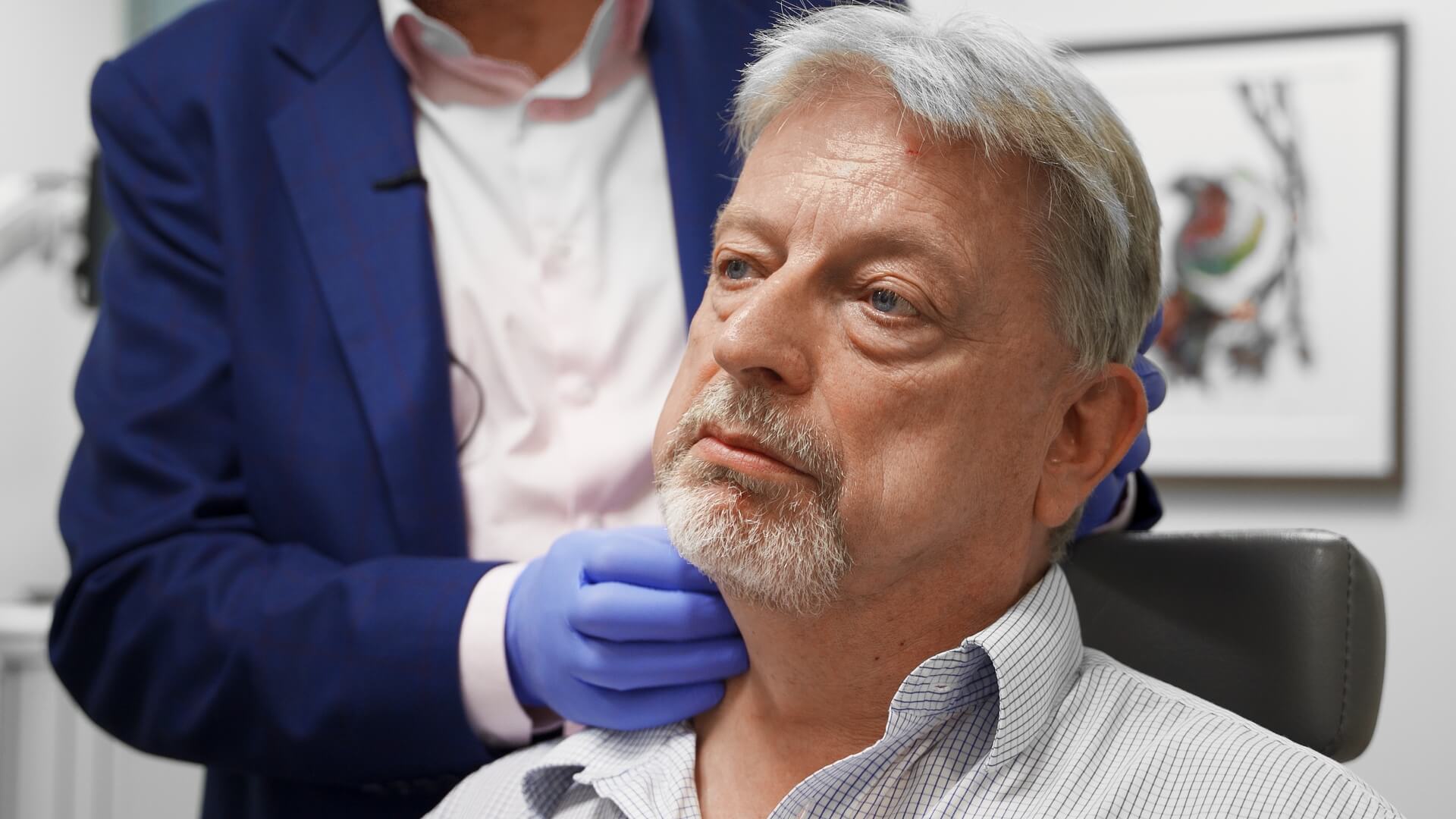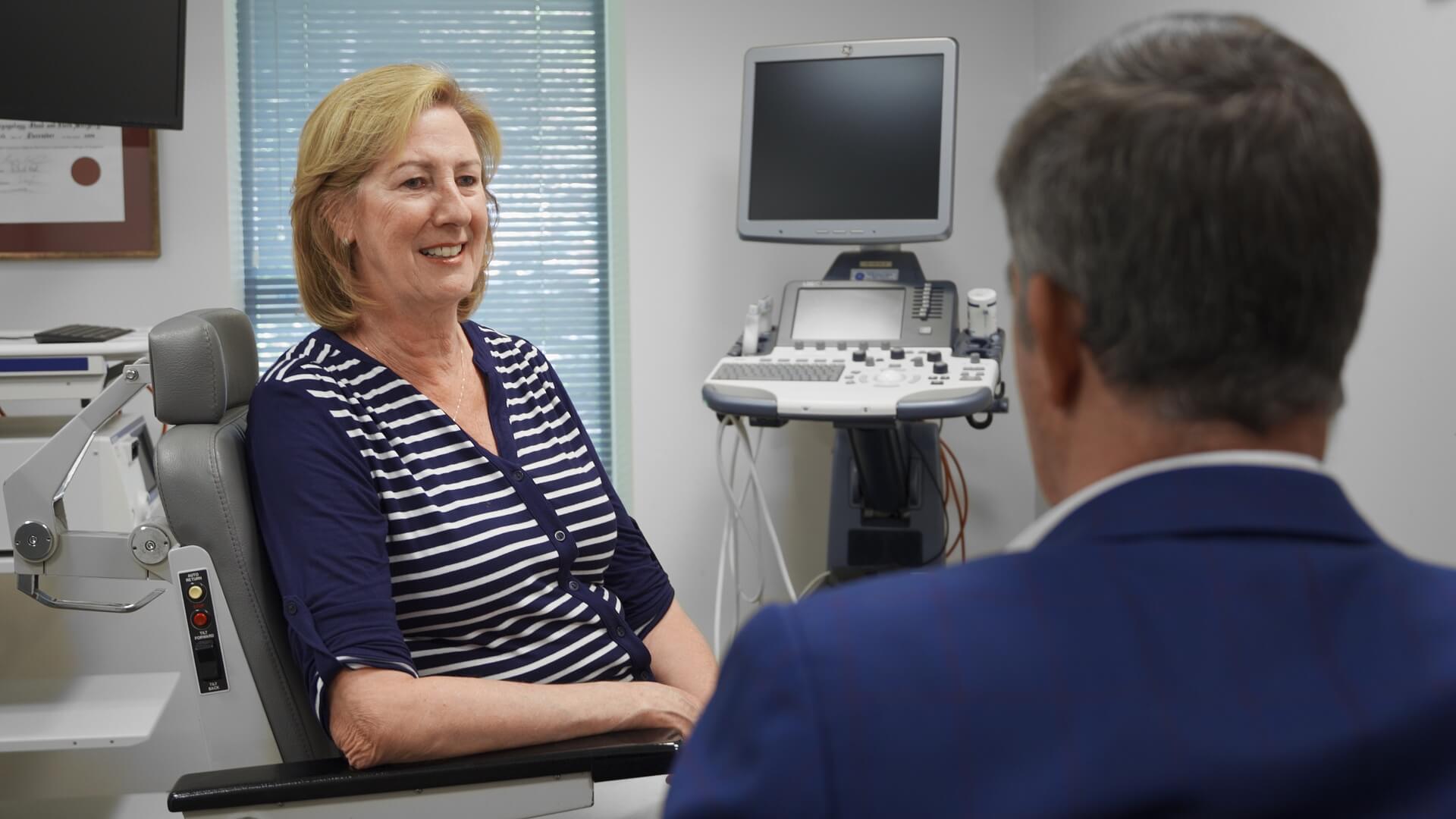There are three common types of skin cancer.
Basal cell cancer (BCC) – this is the most common skin cancer type. Basal cell carcinomas (basal cell cancers) arise from abnormal basal cells (the lowest part) in the skin. They usually present themselves as an abnormal growth on the skin and can look like small bumps, nodules, or a sore that doesn’t heal. These are usually slow-growing tumours that begin as small spots on sun-exposed areas of the face. They usually do not spread to lymph nodes.
Squamous cell cancer (SCC) – this is the second most common of skin cancer type and is more aggressive than BCC. Sometimes squamous cell carcinoma (squamous cell cancers) spread to lymph nodes.
Much like BCC, Squamous cell cancer look like small bumps, nodules, a crusty spot, an ulcer or a sore that does not heal.
Melanoma – this is the least common skin cancer type but is more aggressive compared to BCC and SCC. Melanoma arises from within the melanocytes, the cells that give skin its pigment or colour. Although it is more likely to spread and is often harder to control, approximately 75% of melanomas are found before they have spread and can be cured with treatment.
Melanoma usually present as an abnormal mole or growth on the skin. Regular self-examination will help you determine if a mole is new or changing. Any change in size of a mole on the head and neck, or the appearance of a new mole, should be evaluated by your local GP or by a specialist.
Sometimes the first sign of head and neck melanoma is an enlarged lymph node in the neck.



